Kitty Crenshaw's Blog, page 38
November 23, 2017
The Greatest Thing in the World
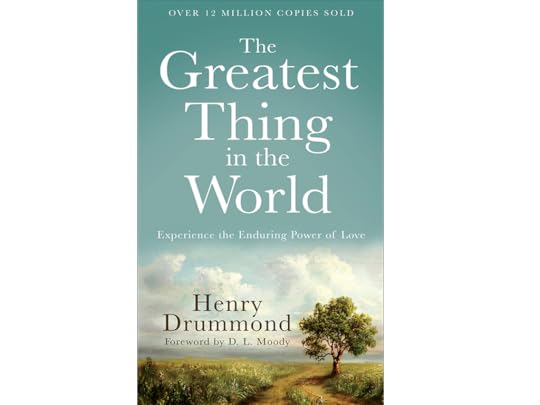
During a tremendously dark time in 1966, Betty was miraculously given an ever-so-thin thread of hope to hold onto. As broken and fragmented as she was, she was still trying to keep up with children who were entering their teens, take care of a busy, demanding husband, teach Sunday school, minister to unwed mothers at the Salvation Army, and lead a Bible study for teenagers. Being so overcommitted, she was, of course, unprepared for the Bible study she had to lead the next day. She needed something to teach from, so she jumped in the Blue Beetle, ran down to Effie Sutton’s bookstore, grabbed a copy of Ralph Waldo Emerson’s essay Friendship, jumped back in the car, threw the bag on the backseat, and raced home to meet the kids and get supper ready before her husband Bryant came barreling through the door.
“That night I got in bed completely exhausted but opened the book anyway, because I had to come up with some kind of a lesson for the next day. When I opened it, I was stunned. Bryant was reading a magazine right next to me, with no idea that lightning had struck next to him. Inside the jacket and the hardback cover of this book by Emerson was a different book entirely. The publisher had printed Henry Drummond’s famous book on love, The Greatest Thing in the World, with the Emerson cover. I had bought a book on friendship but I was holding a book about love.
“As I read it transfixed, I realized for the first time in my life that I didn’t know one thing about how to love. I had been on the verge of quitting my volunteer teaching job at the Salvation Army because I couldn’t get these unwed mothers to respond to me in the slightest. I suddenly realized that I was just teaching them; I wasn’t loving them at all. All of this time I had been preaching to them, all dressed up in my big white Christian god-coat, with the attitude that they were just poor sinners I was there to save. This huge revelation came to me through that little book and not only changed the entire focus of my teaching—it changed the focus of my life. The next day I went back to the bookstore to see if all of the copies had been misprinted but mine was the only one. Imagine that.
“Drummond helped me see all of this by taking each one of love’s characteristics listed in 1 Corinthians 13 and breaking them down one at a time. It seemed to me that God was saying very simply that learning to love was the only thing that mattered in life. It deeply spoke to me, and without saying a word to anyone, I took each virtue and very consciously practiced it for three months. I was still very scattered, my priorities were still very misplaced, I still knew absolutely nothing about myself, I still didn’t understand that I needed to let go of all my striving and just be still and listen for God, but I was responding as best I could to what I felt was God’s call. My desire to know Him was strong, and that desire eventually brought me to a deeper place. Many years later, He would use all of my brokenness and all I had learned from Drummond to offer a thread of hope to others who were struggling through the darkness. If we will persevere, nothing on our spiritual journey is wasted—it is all preparation.”
Love is never merely following suit.
Love is always taking the initiative.
Love reaches out, but love accepts.
For love is seeing as God would see.
Love provides the spark, it turns the switch.
Love cleans, deepens, fills, breathes new air
frees another life
to know God’s heart
to find love there.
~Betty Skinner
November 21, 2017
We Are The Thanks-Givers

God is the giver.
The gift is love.
We are the receivers.
We are the thanks-givers.
All that is is a divine gift. Every breath we draw is a gift of love. Every moment of our existence is grace. Our sacrifice of thanksgiving implies not just a quick easy word of thanks, but rather our whole lives given over in grateful response and loving obedience. The great mystery of gratitude is that what is accepted in thanksgiving multiplies in the sharing of it with others. We give more than we receive when we accept it in gratitude. Five loaves and five fishes, when received as a gift in gratitude, were enough to feed a multitude.
~Betty Skinner
Heaven is breaking through the veil all day, every day. Hot coffee, warm fire, beautiful sun diamonds on the river, eyes of love looking into ours, animals, children, art, grass, cool breezes, changing seasons, beautiful melodies, delicious smells, warmth, wine, great food . . . all of these wondrous gifts are received through gratitude and thanksgiving. Gratitude opens the door. Gratitude completely rewires the architecture of our brain. Gratitude opens us to receive more and more of the good which lifts us into whole new ways of seeing, perceiving, feeling in our body, and relating to others.
Gratitude creates happiness, not the other way around. Gratitude will bring us to a joy that no longer depends on happiness. Our interior life will become so rich and full of all that we are experiencing and tasting of God in all the moments of our life that we don’t need as much from others or the world anymore. Nothing that the world can give can begin to compare with this state of deep, quiet, unspeakable joy. It is the joy of Heaven.
Gratitude is the infinite giving and receiving of love between us and God and the whole of creation. Gratefulness is prayerfulness. Prayerfulness is prayer without ceasing. Gratitude is all we can offer in return for our awakening to the great Mystery in which we live and move and have our being.
Gratitude is everything.
November 20, 2017
November 20, 2017
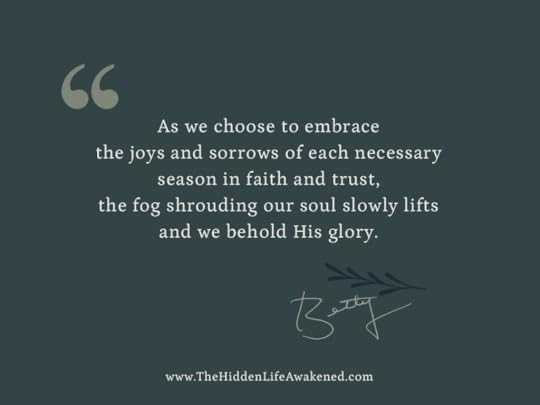
As we choose to embrace the joys and sorrows of each necessary season in faith and trust, the fog shrouding our soul slowly lifts and we behold His glory. ~Betty Skinner
November 13, 2017
November 13, 2017
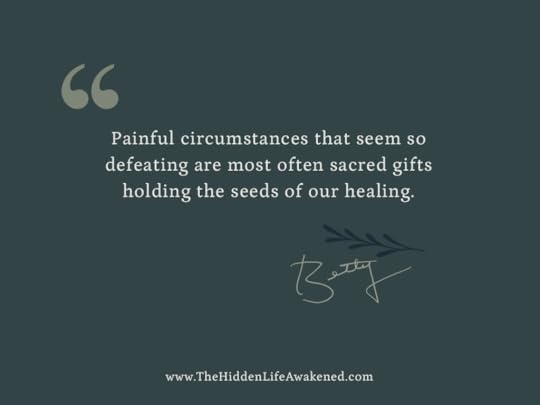
Painful circumstances that seem so defeating are most often sacred gifts holding the seeds of our healing. ~Betty Skinner
November 10, 2017
Every Day is Veterans Day
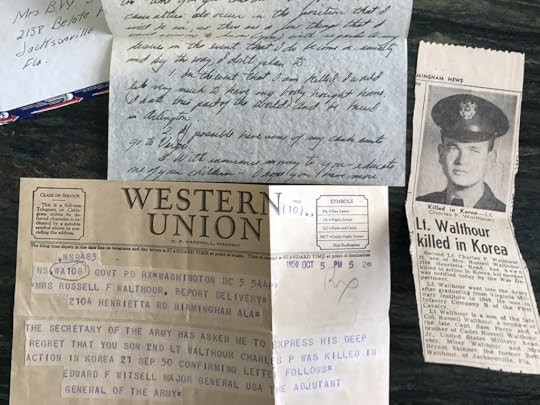
Betty Skinner never forgot.
She never forgot their smiles.
She never forgot their long talks.
She never forgot their love.
And she never forgot their Army green duffel bags, standing in the hallway, where her father and brother once stood.
When Betty turned fifteen, rumors of imminent war were clouding the horizon. Her father, Colonel Russell Walthour, was called to active duty, so he moved his family to Union, South Carolina, where he was put in command of an infantry division. He became so devoted to the troops in his division that when the governor of Alabama offered him a promotion, he turned it down because it meant he would have to leave his men and sit behind a desk in Montgomery.
Within two years, her father’s battalion was transferred to Colorado, and soon after he was sent off to war. The commander of a battalion on the European front had been killed, and the army ordered Colonel Walthour to take over immediately. He had to abruptly leave his men and family to go directly into one of the last and bloodiest conflicts of World War II—the Battle of the Bulge.
Seventy-five thousand troops were lost that savage winter, and Colonel Walthour stood day after day watching young men collapse into their deathbeds of bloody snow.
In the summer when she was nineteen, Betty’s father returned to them unexpectedly. The army said he was suffering from battle fatigue and had sent him to one of the huge Miami Beach hotels that had been converted into military hospitals. In early June, they allowed him to come home for a family visit. Her mother quickly saw that something was very wrong. Colonel Walthour was acting strangely and incessantly paced around the dining room table muttering softly and fretfully swinging his gold pocket watch. She became so worried about his bizarre behavior that she hid their old shotgun behind the cabinet in the garage and asked the army to send him back to the hospital early—which they did.
“One hot day in July, I was upstairs at my desk when I heard the doorbell ring. I opened the door and two army officers in dress uniforms asked to see my mother. I offered them a seat on the blue velvet settee in our parlor and went to the kitchen to find her. Mama came out and thanked the officers but she showed no reaction to the telegram that they handed her. It was the standard War Department one received by so many other families in those days. ‘The War Department regrets to inform you . . .’
“After the men left, Mama just sat on the couch, so I went back upstairs to my room feeling a strange, vague numbness. Mama didn’t tell me what was in the telegram, but somehow I knew that Daddy was dead. It would be years later before I found out that he had hanged himself with his belt from a rafter in his hospital room. The raw truth of his suicide was never discussed. Suicide was not something you discussed in polite company.”
The army report said that Russell had had a nervous breakdown two years earlier, while serving on the front line. He had gone up to check on his men, being very careful to leave his jeep and driver in what he thought was a safe place, but when he returned he found only the smoldering remains of his vehicle and his young driver blown apart by an artillery shell. It proved to be more than Russell could bear.
“I wasn’t prepared for my father’s death. My world as a child had been far removed from the brutalities of reality. Pain struck deeply for the first time and I didn’t know what to do with it. We had been taught to ‘keep a stiff upper lip.’ Feelings and emotions were suppressed, never expressed. Yet on that pain-filled day in July, for the very first time, a vague intuitive sense of reality awakened within me. It shadowed me like a mist on a gray day. I couldn’t see through it, but I knew it was there—and it never left me.
“Daddy’s funeral at Arlington National Cemetery was impressive and befitting his rank. Beautiful horses pulled the caisson bearing his flag-draped casket. There was an honor guard and the twenty-one-gun salute, followed by a bugler playing taps. Mama was quiet; I remember that she didn’t cry or hug me. We never spoke of Daddy again.”
In 1950, Betty’s younger brother, Charlie, was sent away to fight in the Korean War. They were very close because both were reserved and quiet and had always been able to understand each other. Betty was so proud of him. He was tall and handsome and gentle like her father and a natural leader, graduating at the top of his class at Virginia Military Institute. She felt safe with him. They had shared a lifetime of quiet heart connection, living through so much of the same pain, change, and loss together. Because she was so naive, she wasn’t at all concerned for his safety. It never occurred to her that young men might die again so soon after World War II.
After all, Korea was such a small war in such a small country so far away.
She was thrilled when she finally found a letter from him in the mailbox, but her heart sank as her eyes skimmed quickly across the pages. Charlie sounded terribly depressed as he wrote about the horrors of war and the “God forsaken” place he was in. He asked her to promise him three things if anything happened to him: first, she was not to let them leave his body in Korea; second, she was to use his $5,000 government insurance policy to educate her children; and third, she was to make sure that any other money of his went to Virgie, their old housekeeper. It sounded like a premonition of death, which frightened her and triggered a pain so deep she wasn’t able to hold it. She carefully put the letter in the desk drawer beside her bed, repressed the flood of surfacing emotion, and put the fear out of her mind.
About two months later she got the phone call from her mother that at some unconscious level she had been waiting for. Her mother very calmly told Betty that she had some bad news. She had received another telegram from the War Department informing her that Charlie had been killed in action. A single bullet had penetrated the zipper of his flak jacket and exploded in his chest. The ponderous silence that surrounded her father’s suicide had weighed so heavily on Betty’s memory and feelings that she repressed all emotion when the news of Charlie’s death came. All she knew to do was what she had learned from her mother, so she stuffed the overwhelming pain deep into her soul and went on with her busy life. As with her father, her brother was never spoken of again. She never dealt with his loss, never cried a tear. She just didn’t think about it.
She never forgot, either.
After both her father and brother died, their duffel bags were sent home. They stood there near the front door, dull, upright, with shoulder strap that closed with a pull at top.
Her mother never opened them, and when the family headed back south, the unopened bags went with them.
Ask Betty today what she remembers of both her father’s and her brother’s deaths, and she’ll tell you about the duffel bags—standard issued stand-ins for a father and brother that were everything but standard issued. She’ll also tell you about her love for her father and her brother, the love they shared, and the pain they felt.
There is one day on the calendar to honor deceased veterans, and another day to honor and thank all others veterans for their service. For Betty, and the generations of children that followed in her footsteps, barely a day passes, even now, when she doesn’t think of her father and her brother, of their service, and of the loss. There’s no one or two days. Every day is Veterans Day.
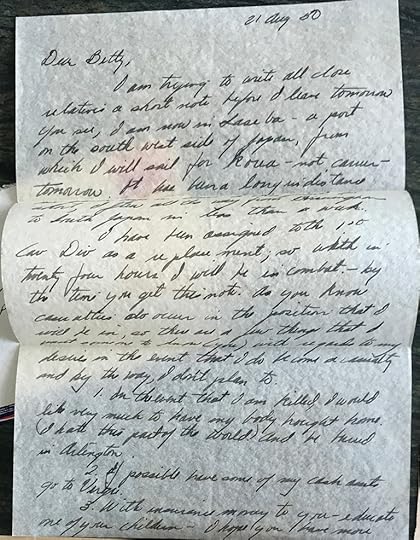 Charlie Walthour’s letter to his sister Betty, dated exactly one month to the date he was killed in action.
Charlie Walthour’s letter to his sister Betty, dated exactly one month to the date he was killed in action.
November 8, 2017
Contemplative Prayer
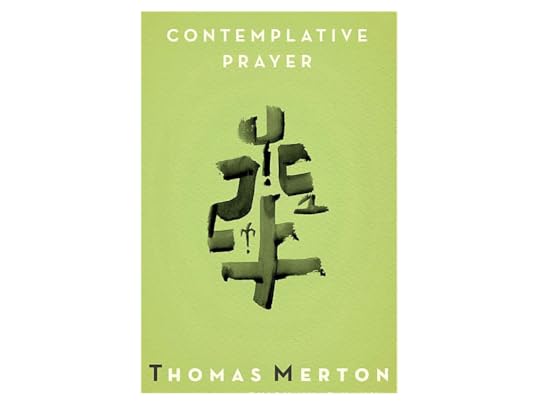
“Contemplation is essentially a listening in silence, an expectancy. And yet in a certain sense, we must truly begin to hear God when we have ceased to listen. What is the explanation of this paradox? Perhaps only that there is a higher kind of listening, which is not an attentiveness to some special wave length, a receptivity to a certain kind of message, but a general emptiness that waits to realize the fullness of the message of God within its own apparent void. In other words, the true contemplative is not the one who prepares his mind for a particular message that he wants or expects to hear, but who remains empty because he knows that he can never expect or anticipate the word that will transform his darkness into light. He does not even anticipate a special kind of transformation. He does not demand light instead of darkness. He waits on the Word of God in silence, and when he is “answered,” it is not so much by a word that bursts into his silence. It is by his silence suddenly, inexplicably revealing itself to him as a word of great power, full of the voice of God.”
~Thomas Merton
Betty’s sister, Missie, began to send her books by many of the Catholic contemplative writers such as Teresa of Ávila and John of the Cross. Missie had never read the books herself but sent them thinking that Betty might be interested. Betty had no idea what a contemplative even was because of the very structured religious tradition she had grown up in, but she took one of the books, Contemplative Prayer by Thomas Merton, up the mountain with her for one full summer. Though she didn’t understand a lot of it, she kept trying. She would write down any confusing or unfamiliar words, and when she came back down to the mountain house, she would look them up in the dictionary and try to discern the depths of their meaning. Many of the other books Missie sent sat on her bookshelf because she thought she wasn’t ready for them.
“At that point in my spiritual journey, I had a very deep sense that prayer was absolutely imperative if I wanted to be able to hear every detail of what God wanted me to do. I had begun a little regimen of getting up every morning about 6:00 to pray and watch the sun rise. Often, the Spirit of God would wash over me in these sweet times, and the tears would flow. The Presence was profound, and I could hardly wait to get up to be with Him again.”
Betty continued to immerse herself in books by the great spiritual writers and found great comfort in the realization that so many of them were drawn to solitude as she was. Thomas Merton spoke of the “solitaries,” and the author of The Cloud of Unknowing distinguished between the “active and the contemplative.” A contemplative is simply a person who is deeply attentive to the Spirit’s mysterious movement and who is drawn to cultivating this Presence in solitude and silence. Solitaries are seldom accepted in our culture, and certainly Betty had felt this rejection. These books helped her realize that she too had been created a contemplative, and it was okay. She was, at last, being affirmed in and living out of who she was created to be. Her contemplative journey had finally brought her to the precious discovery of her true self and the profound gift of the experiential knowledge of God—Divine Union.
“As I slowly walked into the beauty that is God, everything changed. I began to have a sweet sense of divine intimacy. I saw with new eyes, new proportions, new depths, and new light, and I sensed a Presence and warmth of knowing that I was deeply loved. God was affirming me, gathering all of my joy and suffering and sorrow into His tender embrace. I was awake at last. Drawn by the Spirit with Jesus into God, the ultimate end of our journey is this intimate union with God. It is gradual and very difficult to speak about, but once we have a sense of His abiding presence, our loneliness turns to sacred solitude. We are alone but we are walking with Someone: Emmanuel, God with us.”
November 5, 2017
November 6, 2017
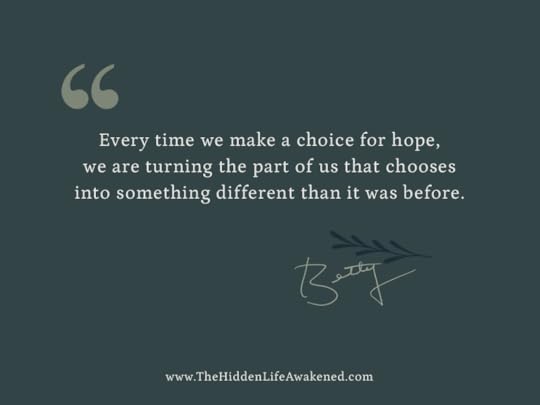
Every time we make a choice for hope, we are turning the part of us that chooses into something different than it was before. ~Betty Skinner
November 2, 2017
Centering Prayer

Betty Skinner, the inspiration for The Hidden Life Awakened, shares a “centering prayer” to help guide you in mediation.
October 26, 2017
October 26, 2017
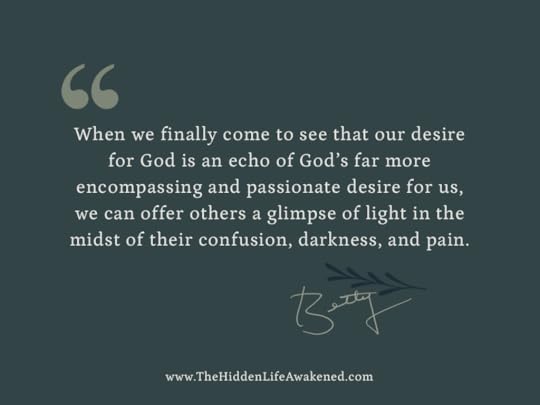
When we finally come to see that our desire for God is an echo of God’s far more encompassing and passionate desire for us, we can offer others a glimpse of light in the midst of their confusion, darkness, and pain. ~Betty Skinner
Offer Light in the Midst of Confusion, Darkness, and Pain

When we finally come to see that our desire for God is an echo of God’s far more encompassing and passionate desire for us, we can offer others a glimpse of light in the midst of their confusion, darkness, and pain. ~Betty Skinner
The post Offer Light in the Midst of Confusion, Darkness, and Pain appeared first on The Hidden Life Awakened.



